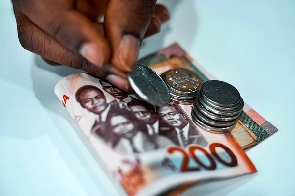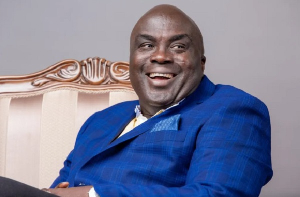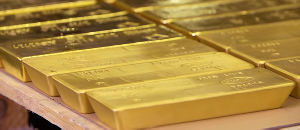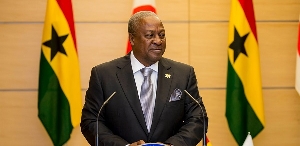The cedi’s dark days appear to be over, at least until the end of the year, with market movements over the last week. There is a showing sign of sustained recovery that could bring major relief to traders, market players including bankers and ordinary citizens who only crave stability in the currency regime. The local currency, which traded as high as GH¢15 to the USD some two weeks ago on the interbank markets and almost GH¢16 on the retail market has made some gains after several regulatory and government interventions. The cedi is currently trading between GH¢13- GH¢14 on both markets. According to Ashley Thompson-MacCarthy, The Executive Director at Obsidian Achernar Limited, a leading Financial Services and Africa-Focused firm, events from last week and the beginning of this week, coupled with the advanced nature of negotiations with the International Monetary Fund (IMF) for a programme, shows that the worst of the depreciation is over, and Ghanaians can look forward until at least the end of the year with some optimism about the currency. “We believe that the worst is over, and the currency will strengthen against the greenback (US Dollar). We will see prices stabilise and even appreciate to the levels of GH¢11.5 to US$1. That is what we believe,” he said, sounding highly optimistic. “We think the currency is undervalued due to perception that we do not have a structured economy. And we have seen prices across bond yields reflect that lack of confidence. However, in the last week or so, we have seen bond yields drop marginally. And we believe this is a sign of things to come,” Mr. Thompson-MacCarthy noted. Last week, the Central Bank revoked the licences of some forex bureaux which have been flouting sections of the Foreign Exchange Act. Also, black market operators who have no licence are being clamped down. In addition to these moves, the Bank of Ghana announced the receipt of more than a US$1billion in forex via a loan from Afreximbank and the first tranche of the cocoa syndicated loan. These moves have calmed the markets and has seen individuals and corporates which have been hoarding the US currency as a store of value begin to release their dollars. “Some weeks ago, there was an unusual high demand for dollars by people who ordinarily would not be demanding dollars. This led to the rapid deprecation but the moves by the regulator have changed the mood and over the past seven days, we have seen a flush of USD on the market,” he added. America’s likely recession/IMF negotiations With several economists and market analysts predicting a likely recession in the United States in the coming months, Mr. Thompson-MacCarthy believes this could auger well for developing economies such as Ghana. “The retracement of cedi’s free fall is also bringing back international investors into our market. On the talks that the United States are going into a recession, these international investors are looking for yields, they are looking for where to invest and we see that Ghana is undervalued. Typically, when countries enter into an IMF programme, we should see the currency stabilise and so we are going into that period where we believe that the worst is over. Whereas if you look at the West, especially a country like America, its Dollar Price Index, dropped from 113 to as low as 109. Today it is stabilising around 111. This shows that there is volatility in America. “Having a well-diversified investment portfolio is strategic. We believe that a major part of the gains from keeping cash dollars have been crystallized on our market. As the dollar begins to weaken globally, it will be good to take advantage of other asset classes like Government bonds that are heavily discounted and make a good entry. Also, there are options like commodities, property and real estate markets that provide leverage that is currently untapped in our country,” he added. December in GH With the Year of Return raking in almost US$2billion in 2019, according to official data, the government has introduced a comprehensive December in GH plan that seeks to make Accra and Ghana the holiday destination of Africa. With the worst days of the pandemic over, this December primes to be a gamechanger. This, Mr. Thompson-MacCarthy believes would also bring in some good FX to support the local currency. “Our biggest asset, which we do not talk about much is peace. The fact that we have political stability means we can attract foreign investment and tourism opportunities that bring in very good FX for the economy. We must cherish this and make it a mainstay of the economy.” The authorities should endeavour to make sure that the impending FX from the end-of-year activities are routed through regulated channels, he added.
Click to view details



Business News of Tuesday, 1 November 2022
Source: thebftonline.com

















